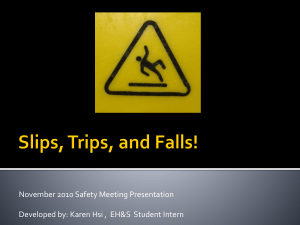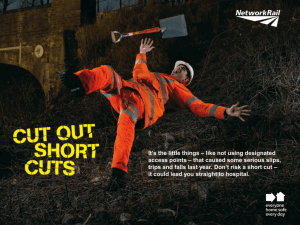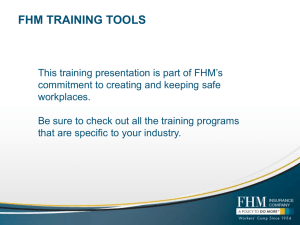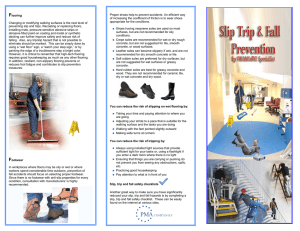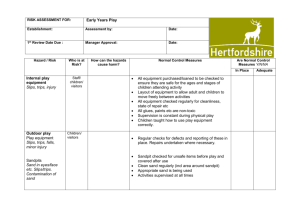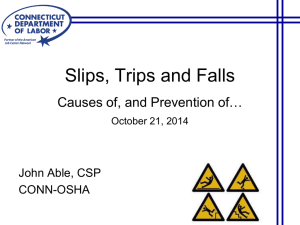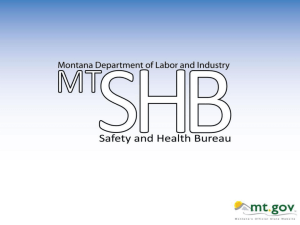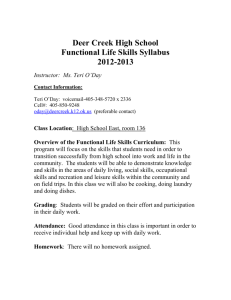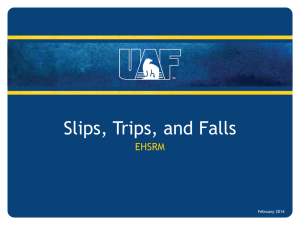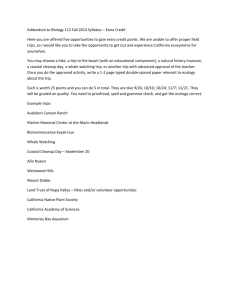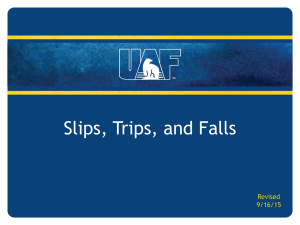Slips & Trips - Operating Experience
advertisement
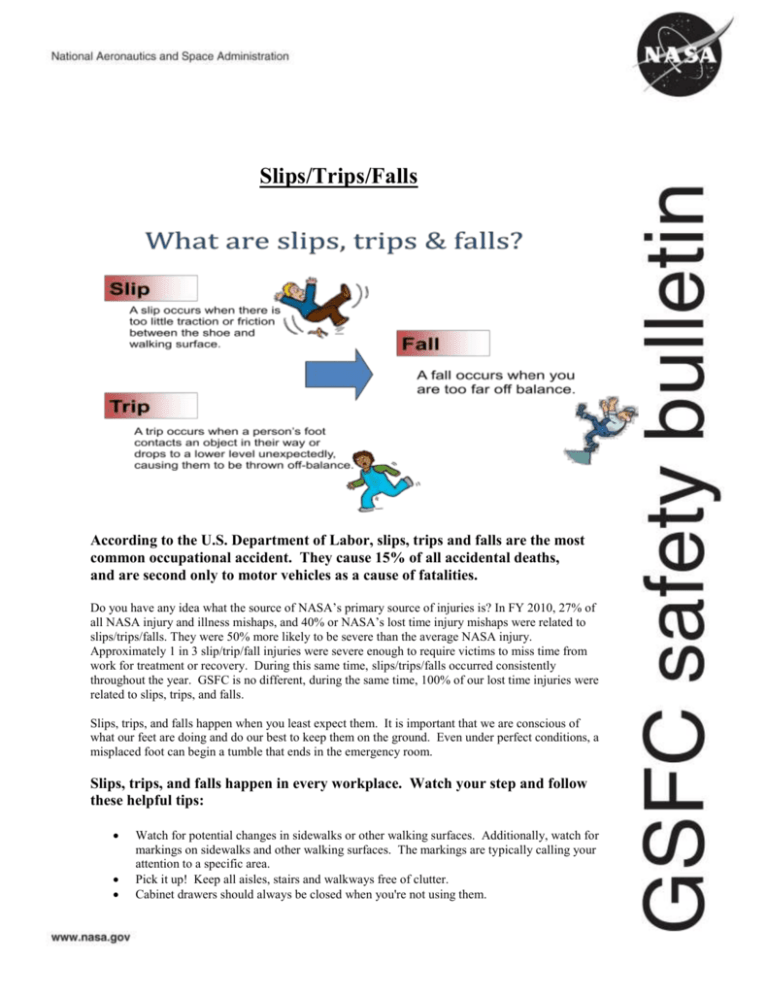
Slips/Trips/Falls According to the U.S. Department of Labor, slips, trips and falls are the most common occupational accident. They cause 15% of all accidental deaths, and are second only to motor vehicles as a cause of fatalities. Do you have any idea what the source of NASA’s primary source of injuries is? In FY 2010, 27% of all NASA injury and illness mishaps, and 40% or NASA’s lost time injury mishaps were related to slips/trips/falls. They were 50% more likely to be severe than the average NASA injury. Approximately 1 in 3 slip/trip/fall injuries were severe enough to require victims to miss time from work for treatment or recovery. During this same time, slips/trips/falls occurred consistently throughout the year. GSFC is no different, during the same time, 100% of our lost time injuries were related to slips, trips, and falls. Slips, trips, and falls happen when you least expect them. It is important that we are conscious of what our feet are doing and do our best to keep them on the ground. Even under perfect conditions, a misplaced foot can begin a tumble that ends in the emergency room. Slips, trips, and falls happen in every workplace. Watch your step and follow these helpful tips: Watch for potential changes in sidewalks or other walking surfaces. Additionally, watch for markings on sidewalks and other walking surfaces. The markings are typically calling your attention to a specific area. Pick it up! Keep all aisles, stairs and walkways free of clutter. Cabinet drawers should always be closed when you're not using them. Turn on the lights before you enter a room. Always use handrails on the stairs, and take one step at a time. Broken stairs or loose stair coverings? Report them right away! If you spot a spill, clean it up or report it immediately. Stay away from shortcuts. The route less traveled may be less safe! Never ever run cords, cables or hoses across high-traffic areas. If it can't be avoided, make sure the area is marked off. Don't overload – take only what you can carry comfortably. Make sure you can see over it! Wear sensible shoes. When walking on a wet or slippery surface, slow down, take small steps, and keep a hand free for balance. Walk! Don’t run! POINTS TO PONDER: How do the floor and stair conditions in your work are affect the likelihood that you will slip/trip/fall? Are there any areas that require extra care? How can you make walking easier and slipping less likely for your employees? When are you particularly in danger of slipping or falling? Consider the time of the day, activities, and locations that might be more dangerous to you personally. Using your eyes is essential – when are you most likely to forget to look before you step? How does your footwear affect the likelihood that you will slip, trip, or fall? The general wisdom is that greater contact area between your shoes and the floor will improve stability, as does higher friction between your shoe and the floor. Think about your work area. Do you need extra mats in certain locations? Are there any obvious trip hazards that could easily be addressed? Are there any fall hot spots near your work area? What can you do to improve the risk? How often do you walk on autopilot, without paying attention to the ground beneath your feet? Do you use handrails and other resources available to help protect you from falling? How Do I Report Problems? 1. 2. 3. 4. Report any lighting problems or hazardous floors (there are loose tiles, torn carpets, broken or loose flooring, or bumps or cracks in the concrete surfaces) to the FMD Help Desk x6-5555 at Greenbelt and “HELP” (4357) at WFF. If you are involved in any clean-up operations. Please mark off slippery floors. Report any special hazards that may be lurking in stairwells or in other areas on the center. Remember, all mishaps and close calls should be reported using the NASA Incident Reporting Information System (IRIS) at: https://nasa.ex3host.com/Iris/newmenu/login.asp. Additional information (including a couple of videos) on slips, trips, and falls can be found at the following url: http://nsc.nasa.gov/SlipsTripsFalls/ . If you have any questions, call Lisa Cutler at x6-7409.
